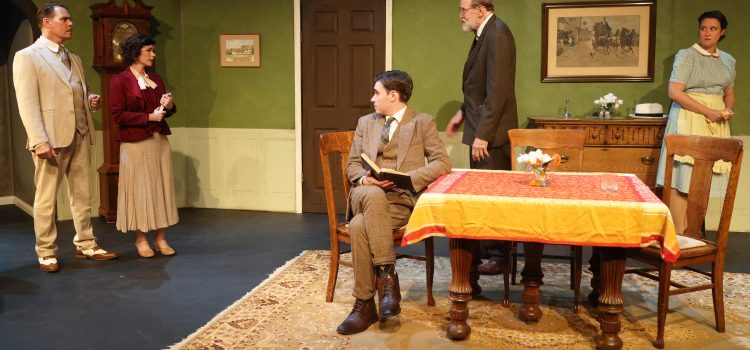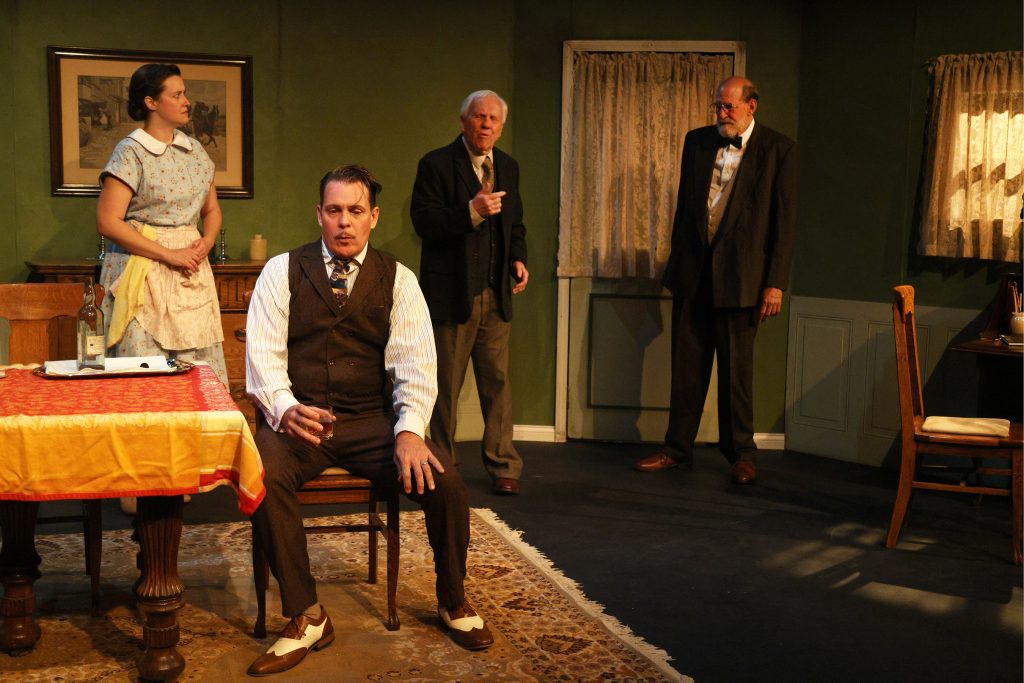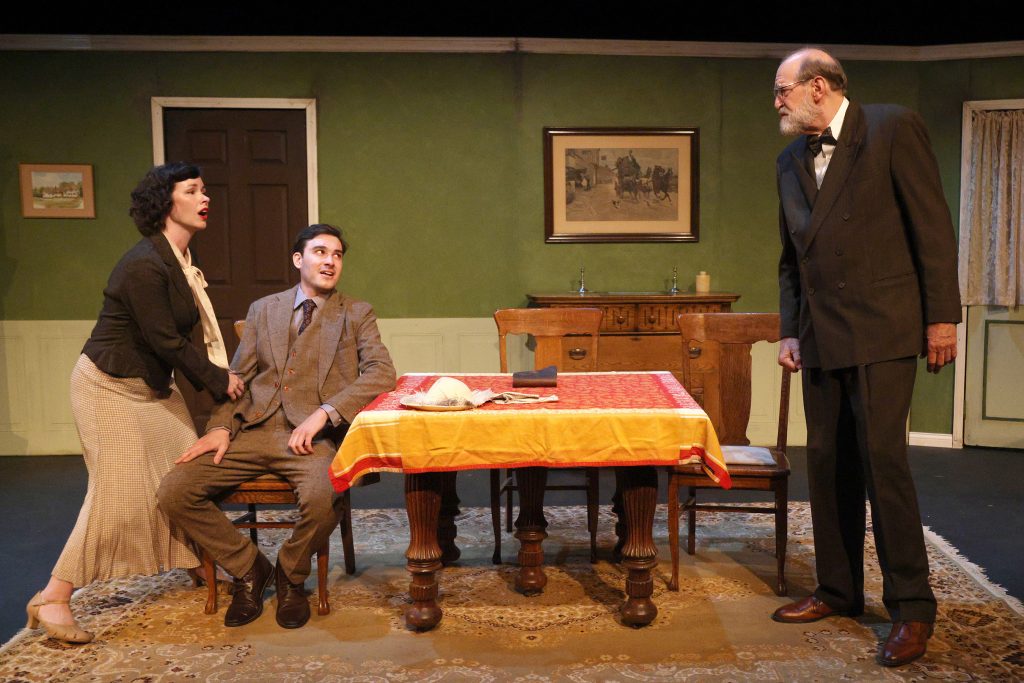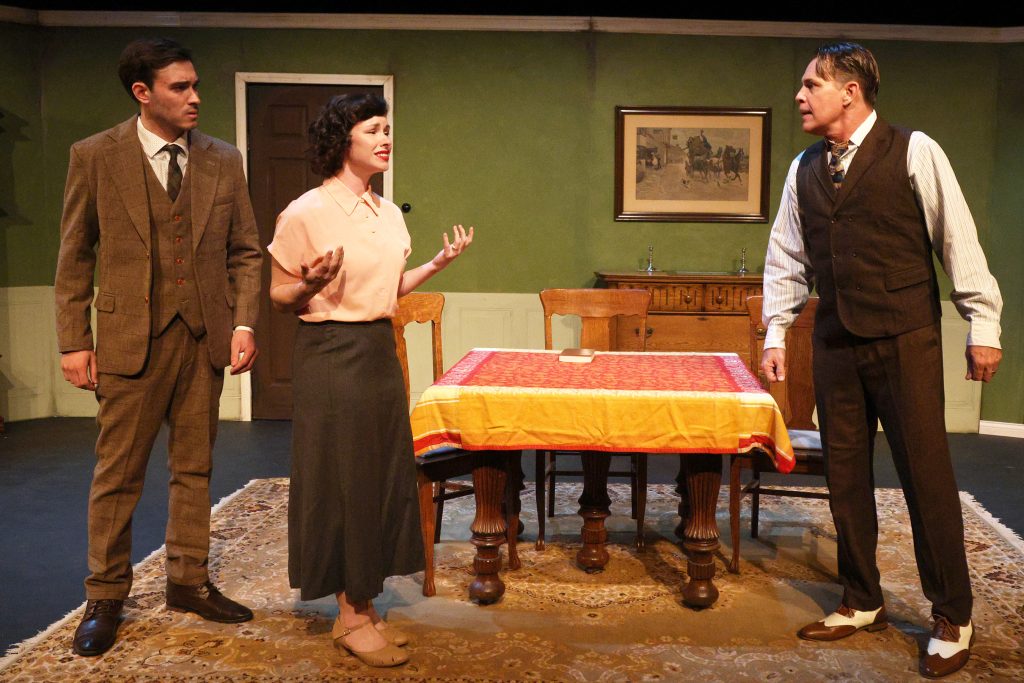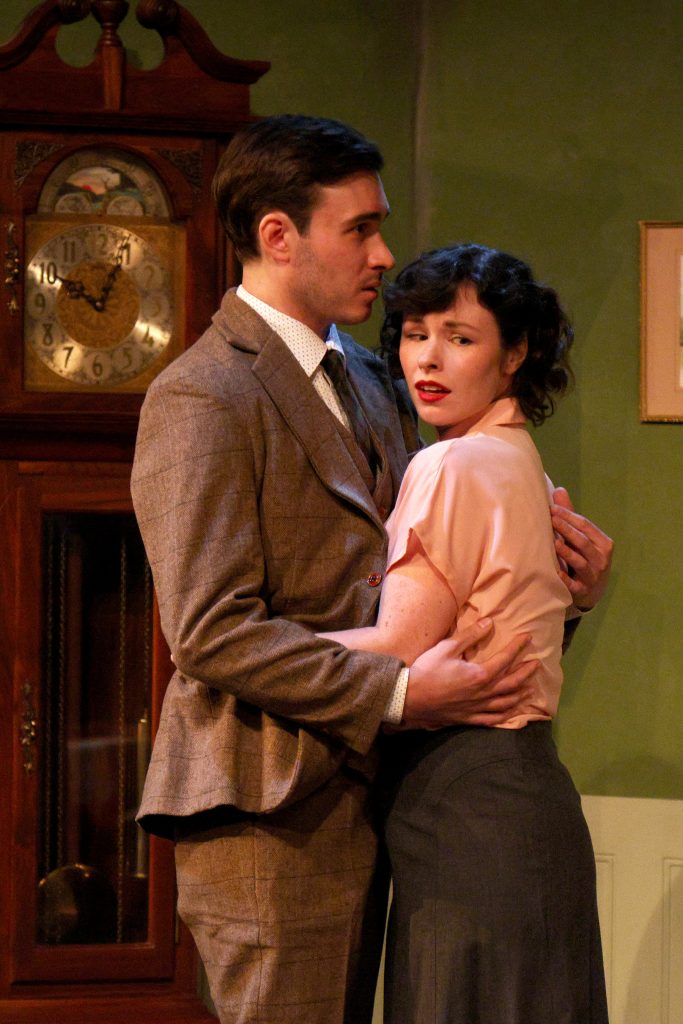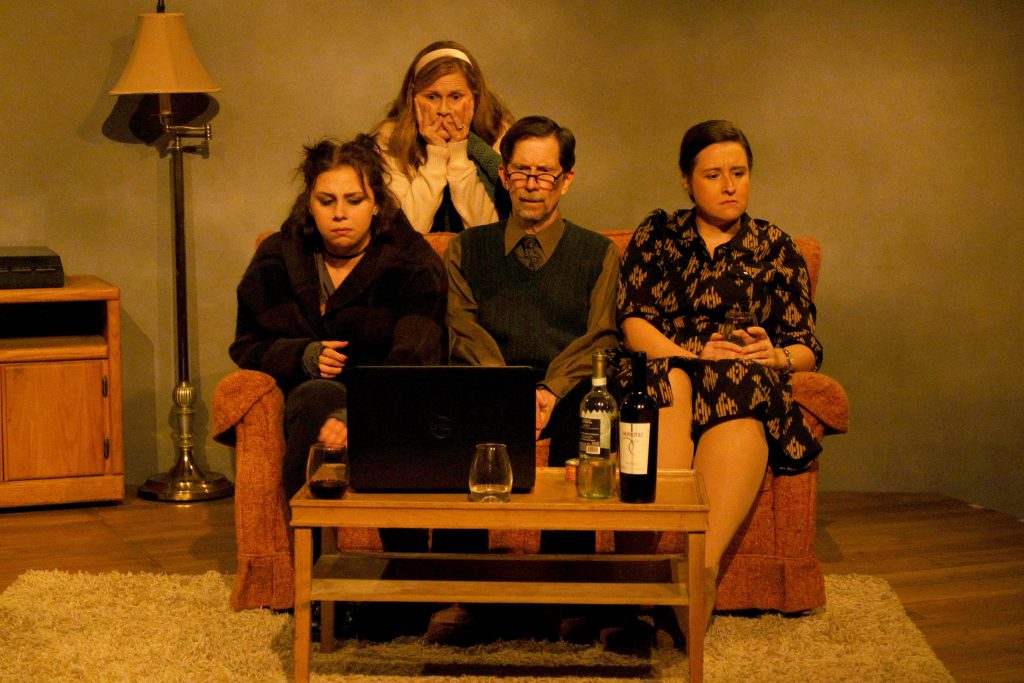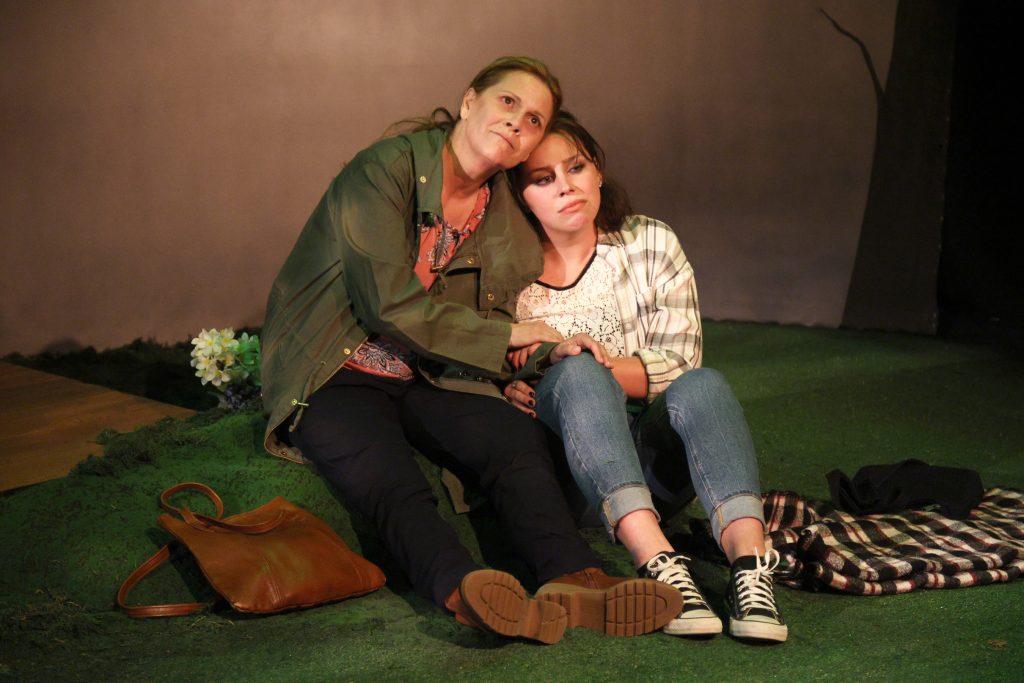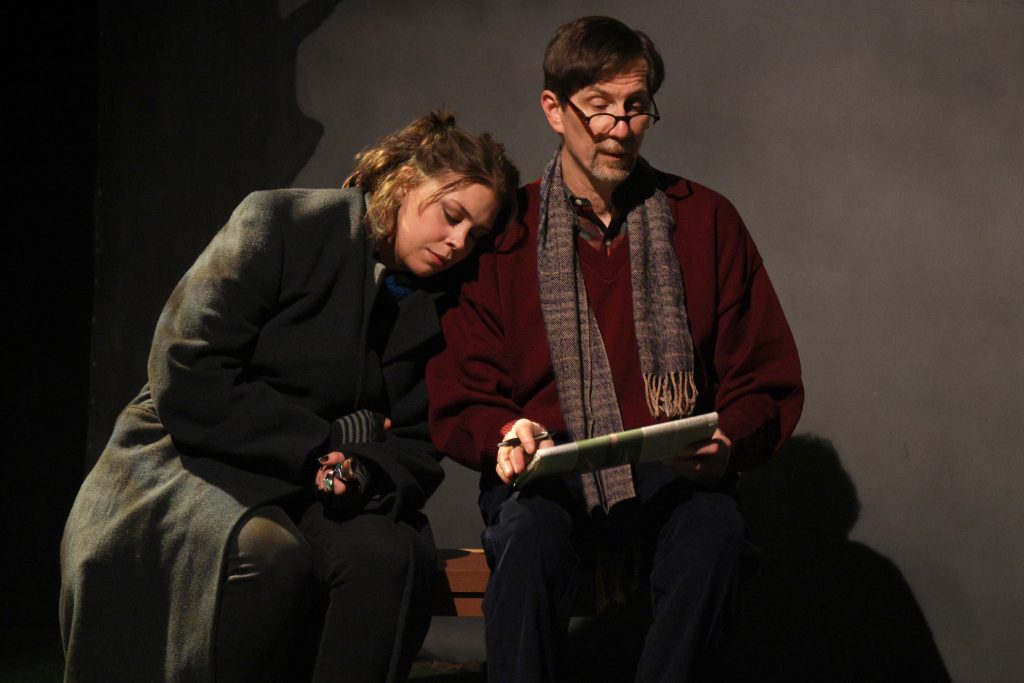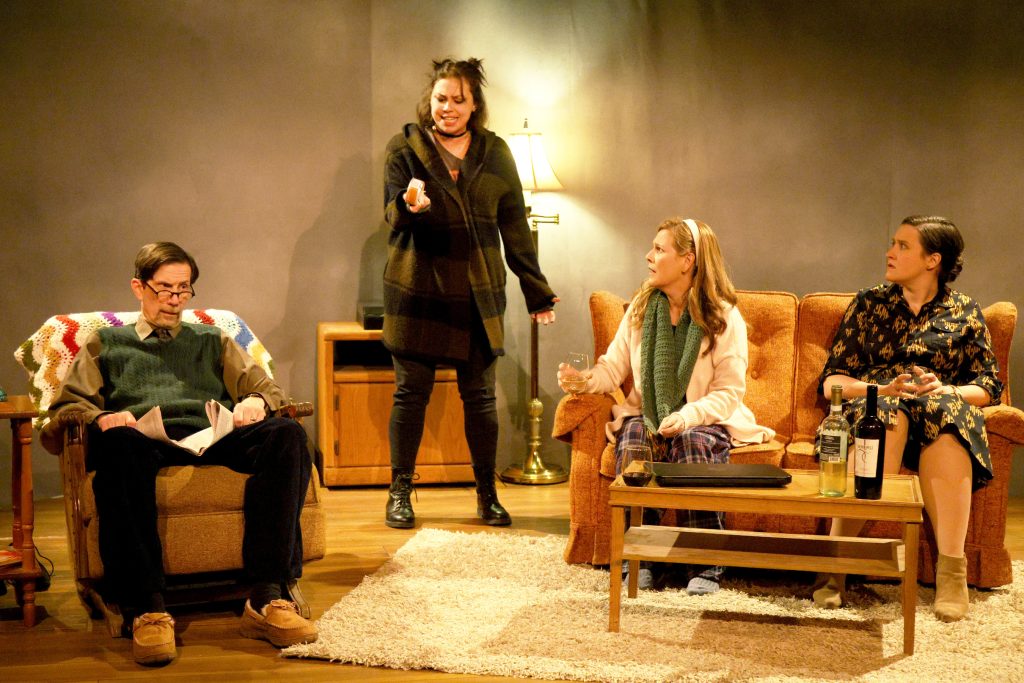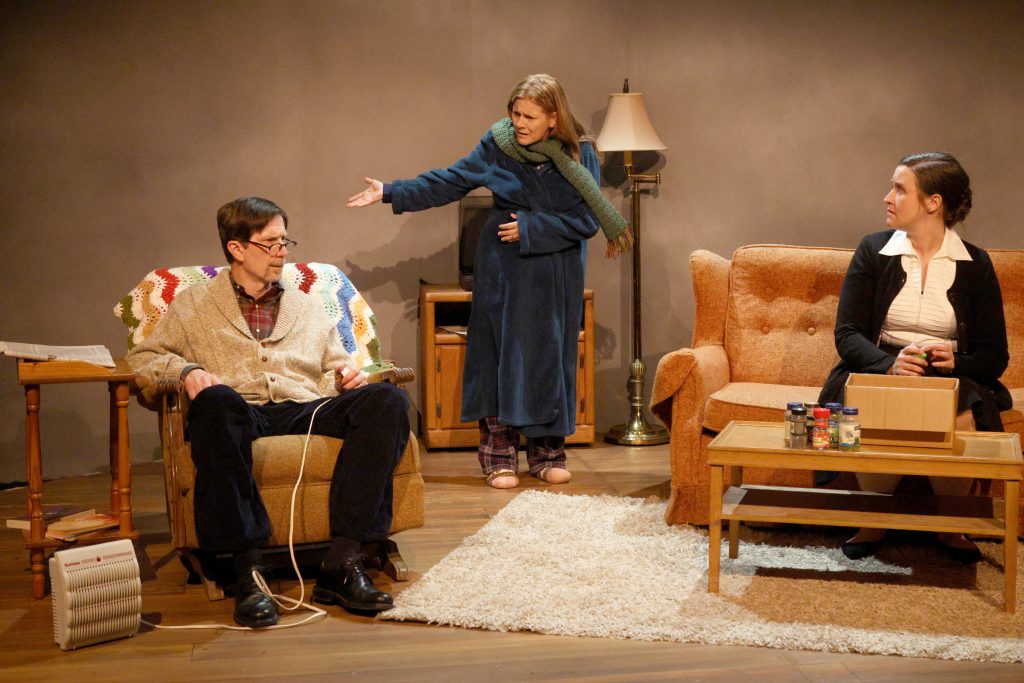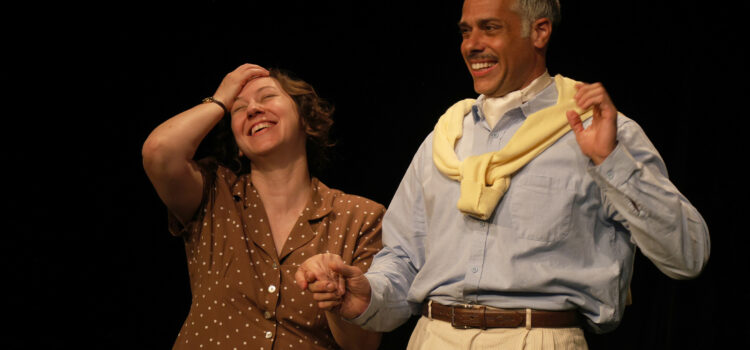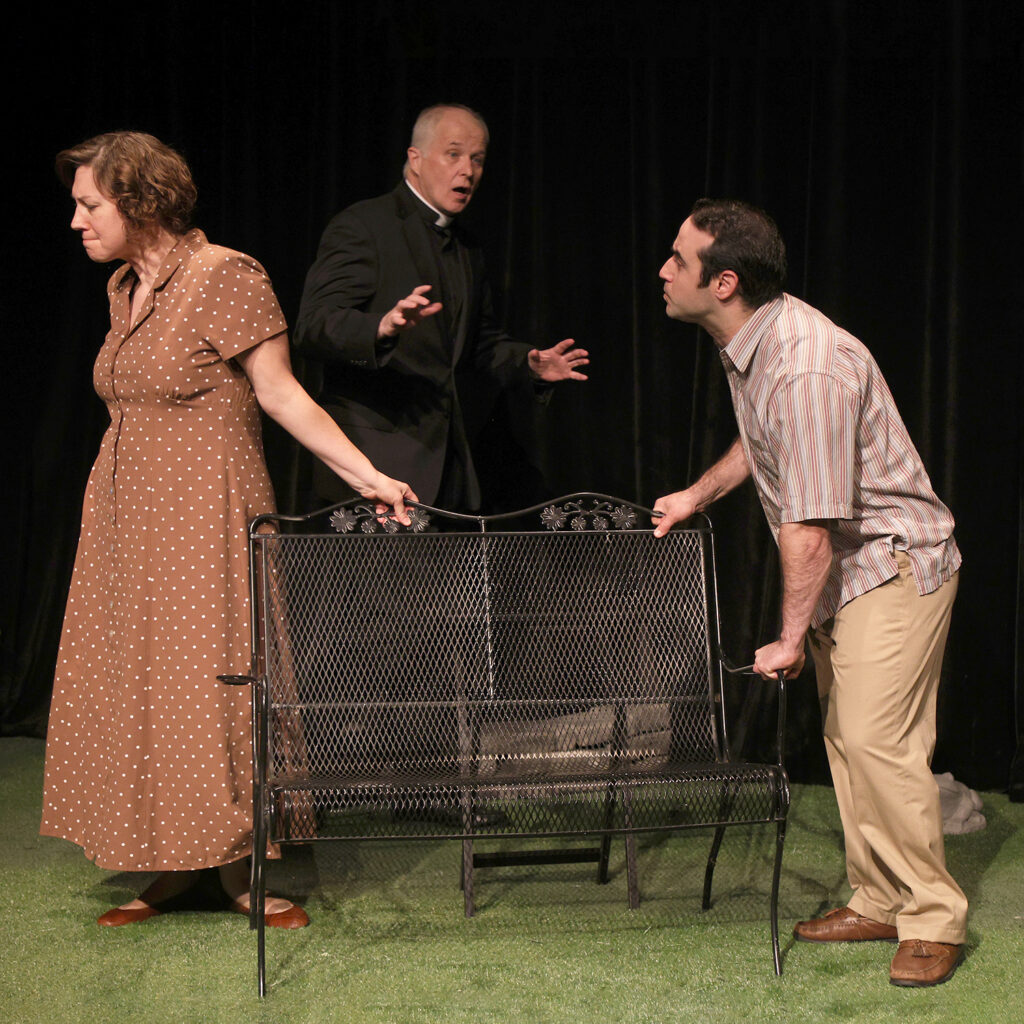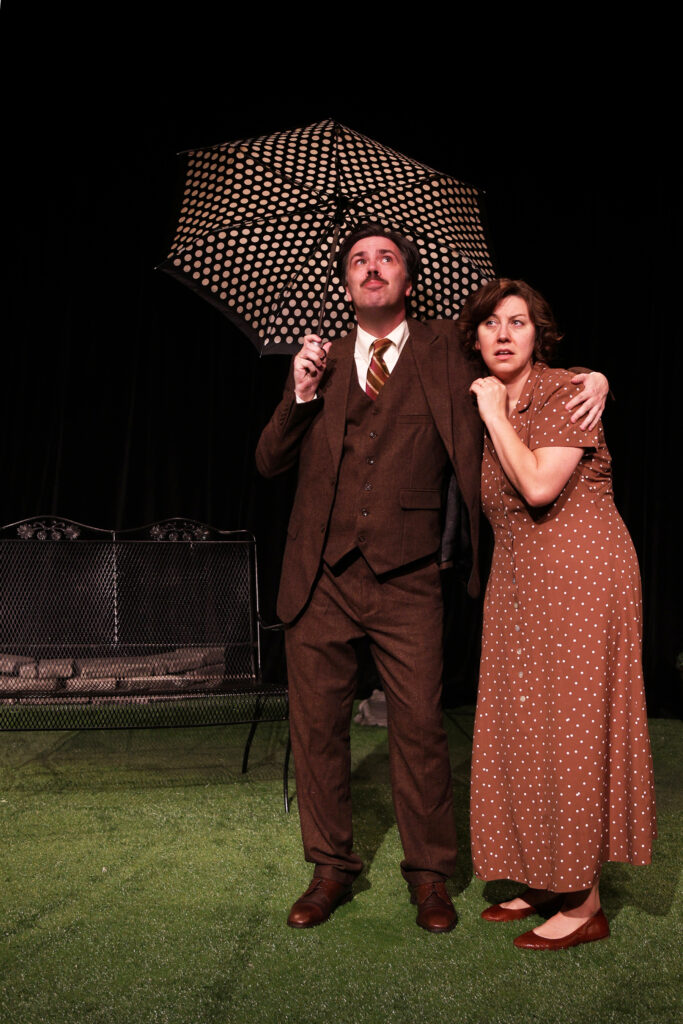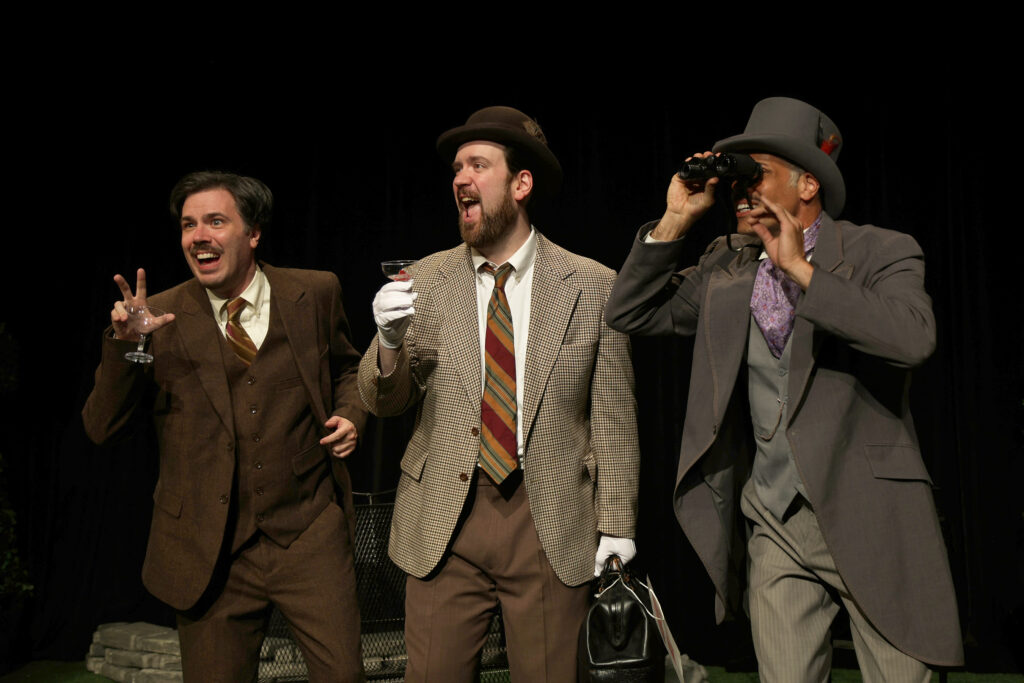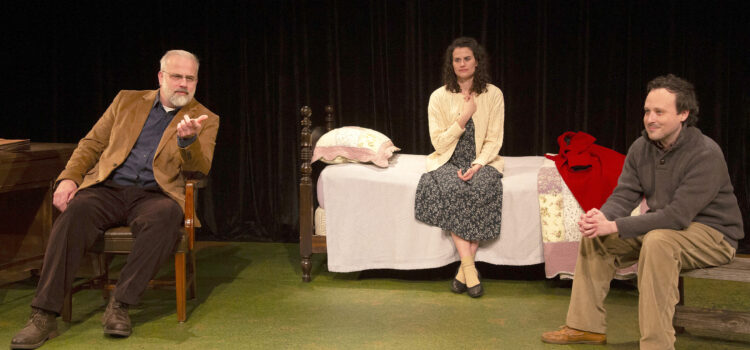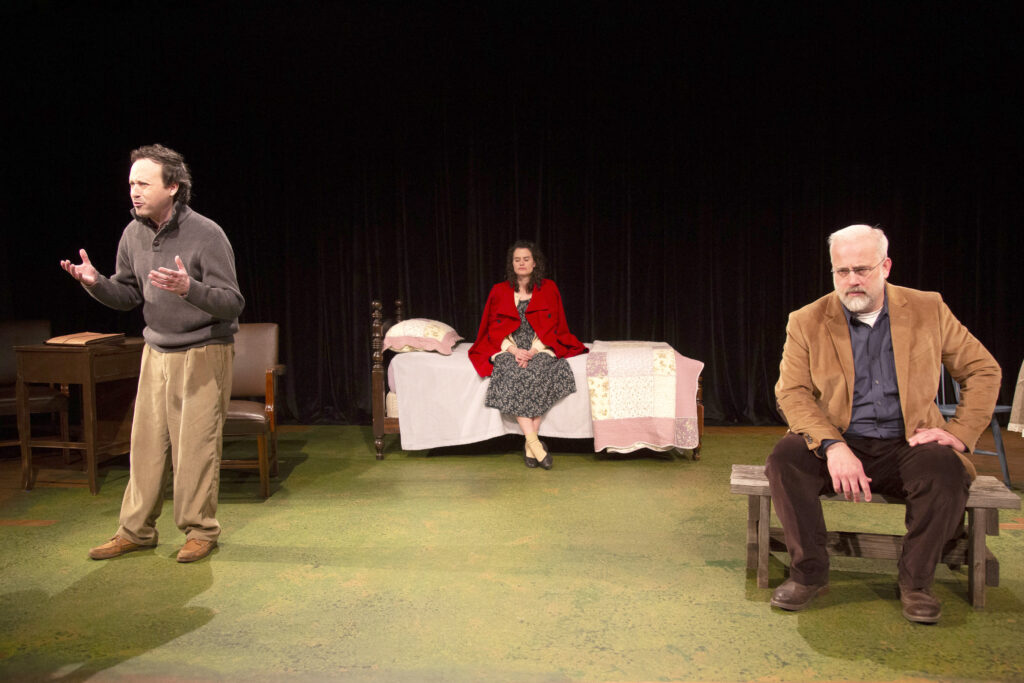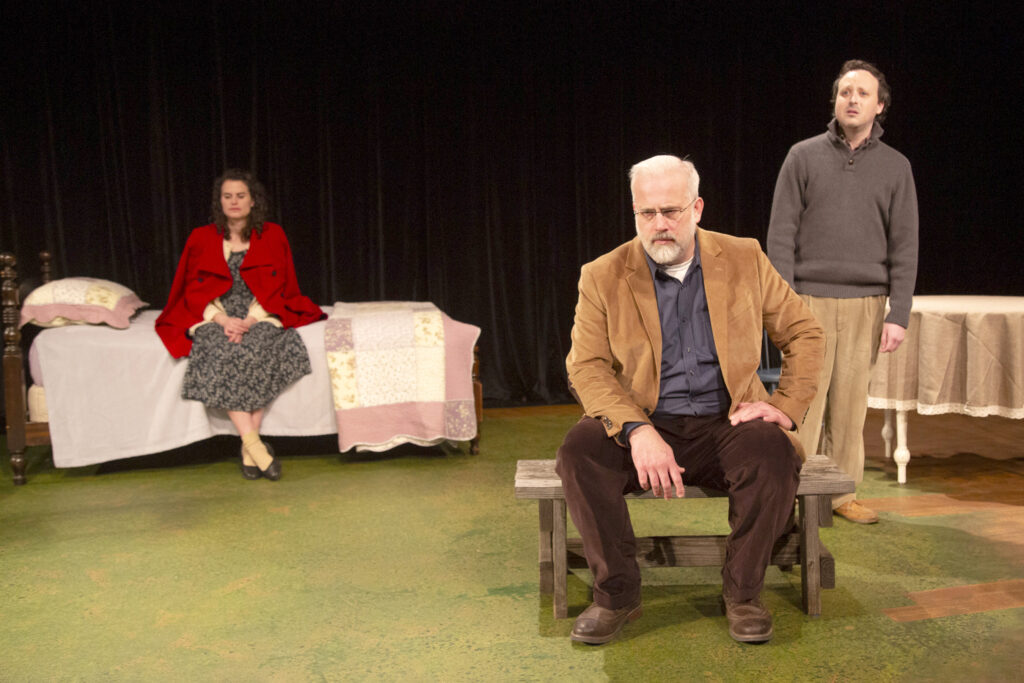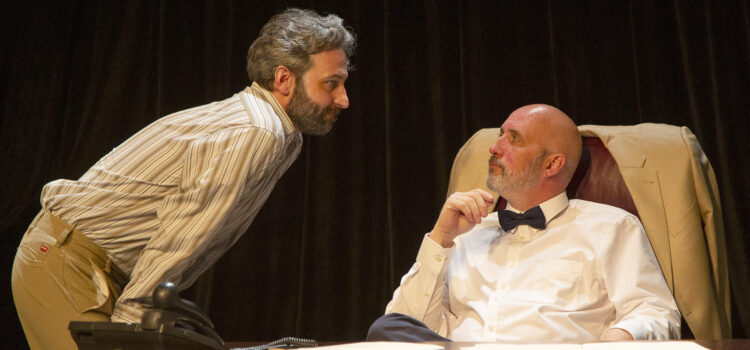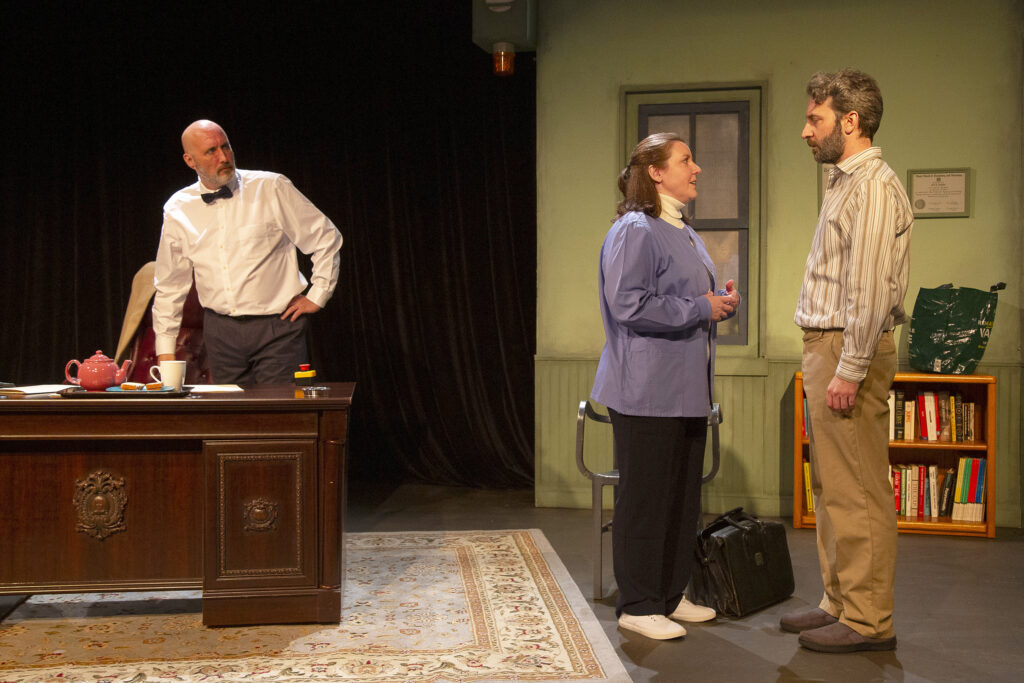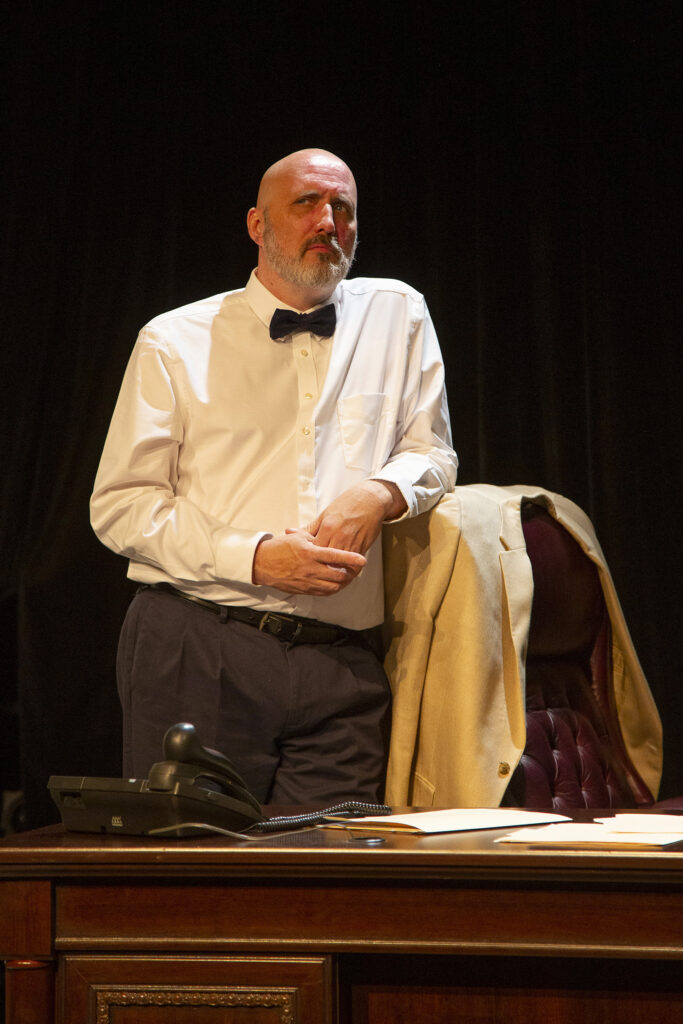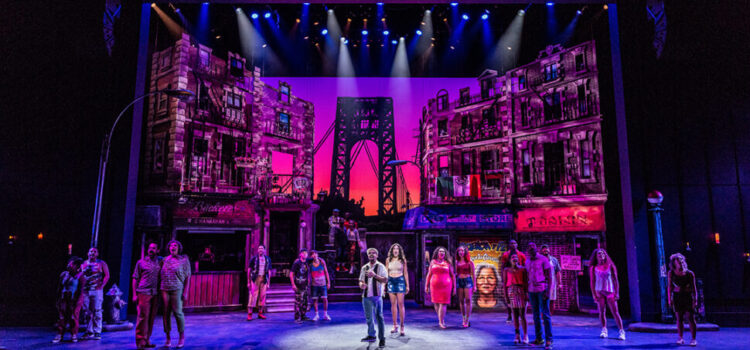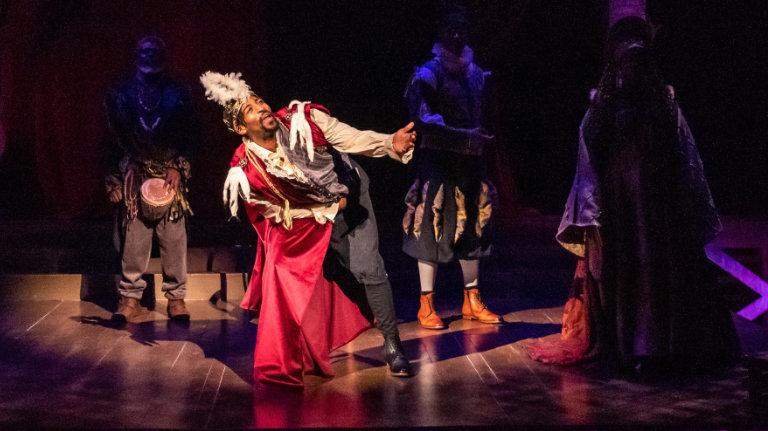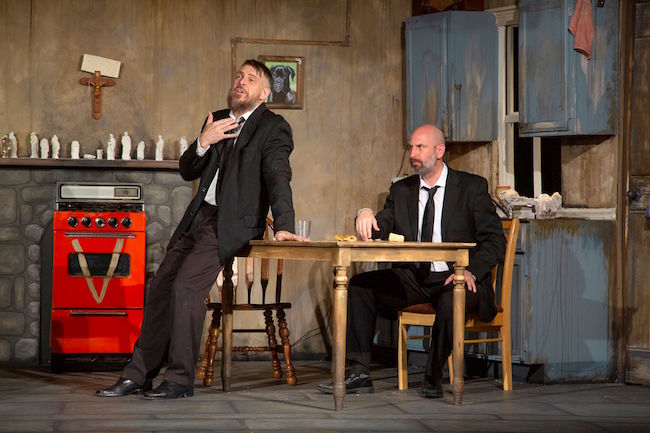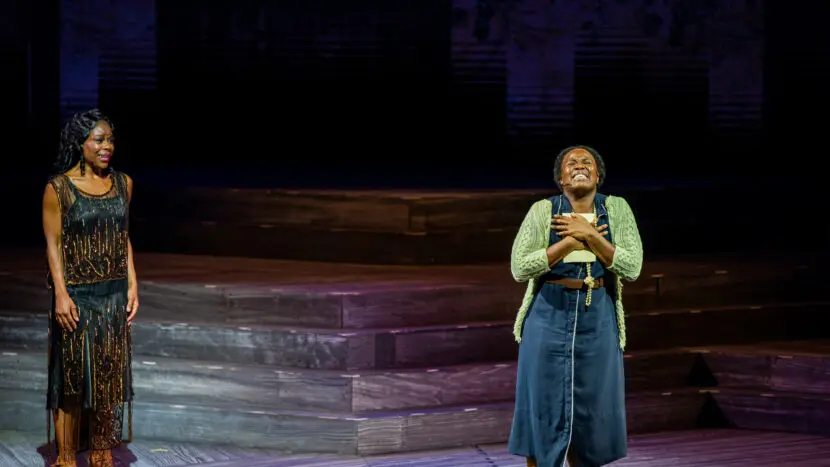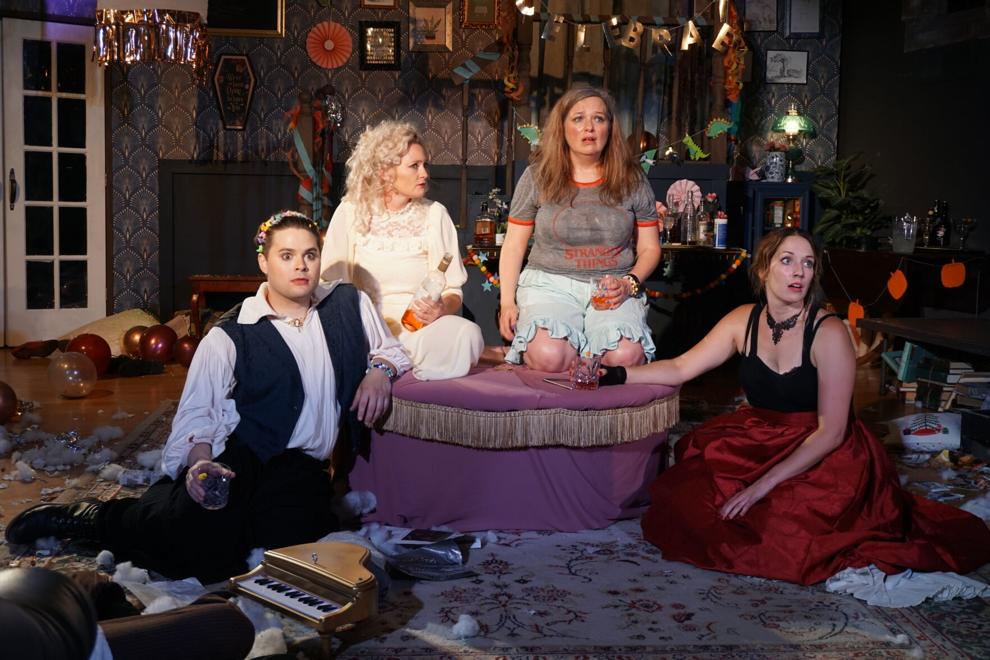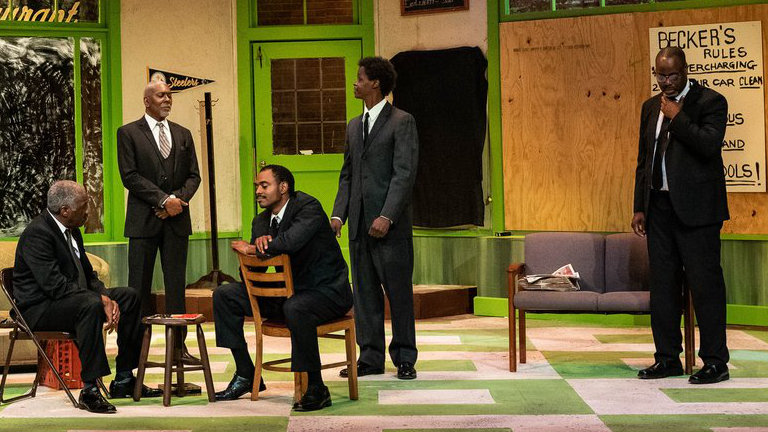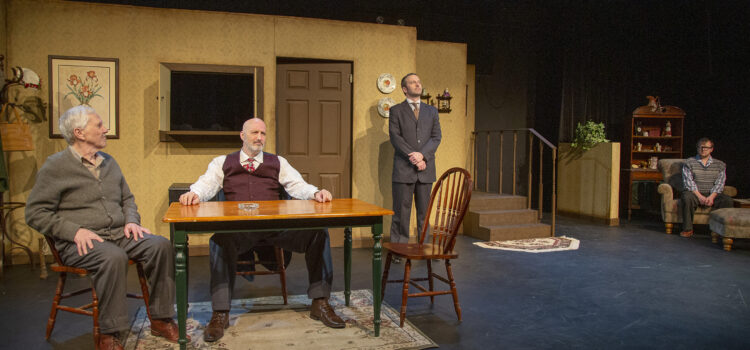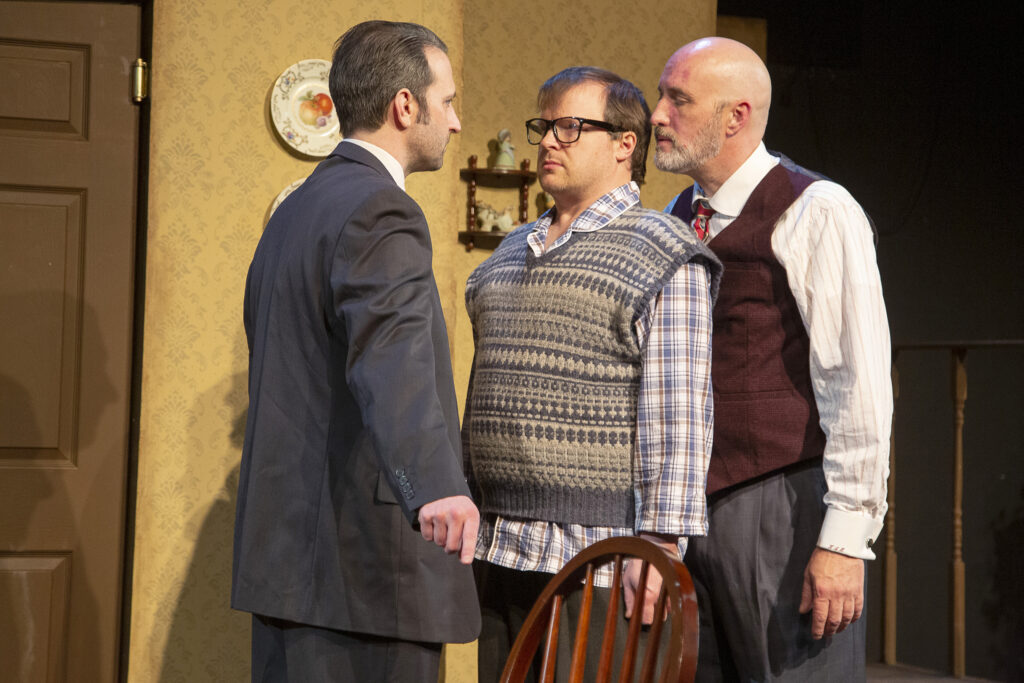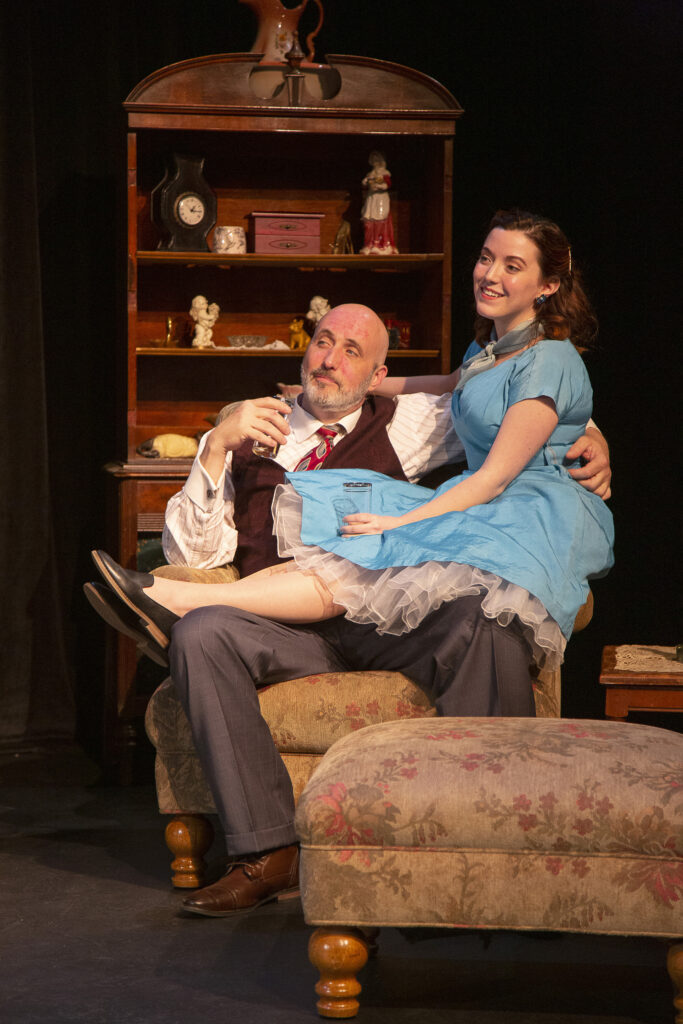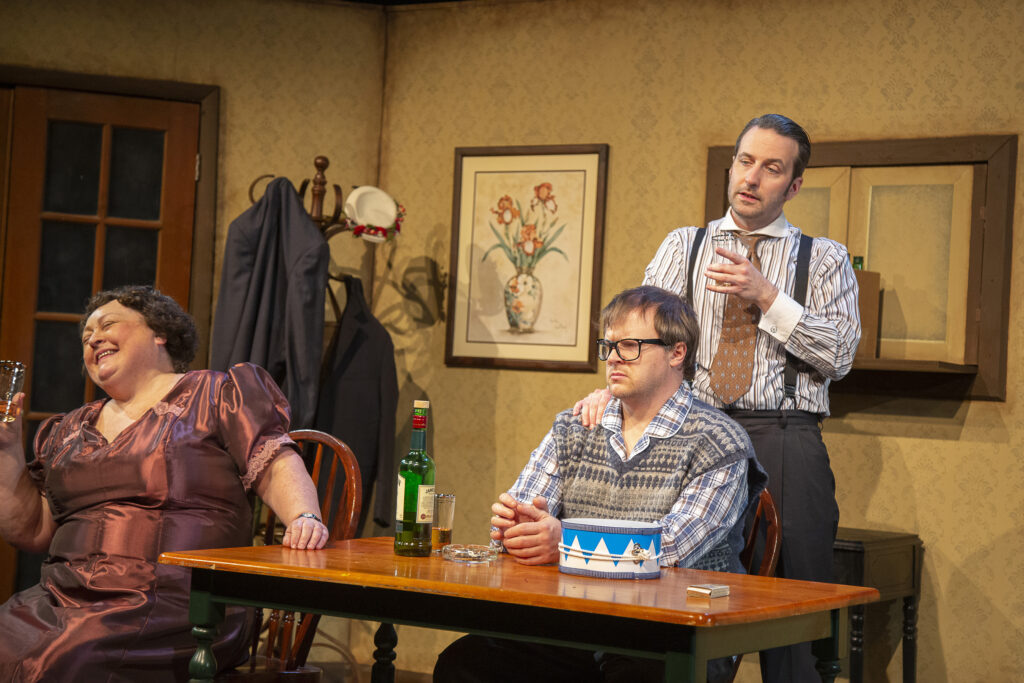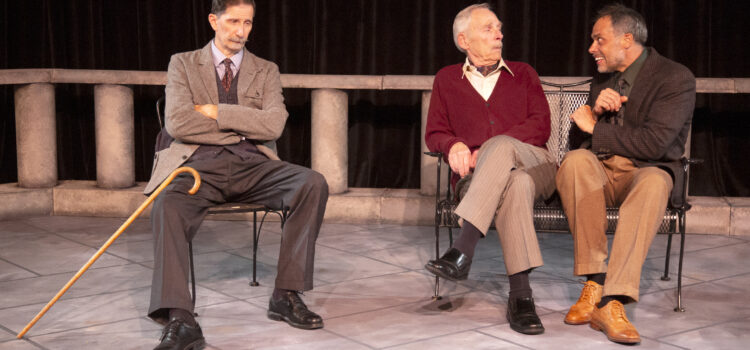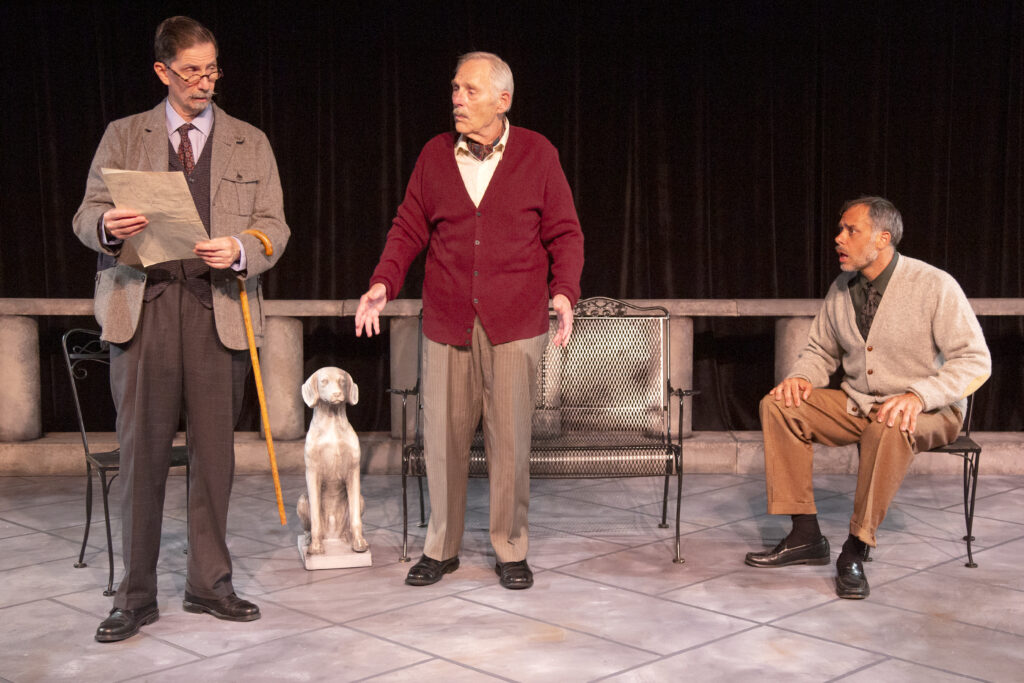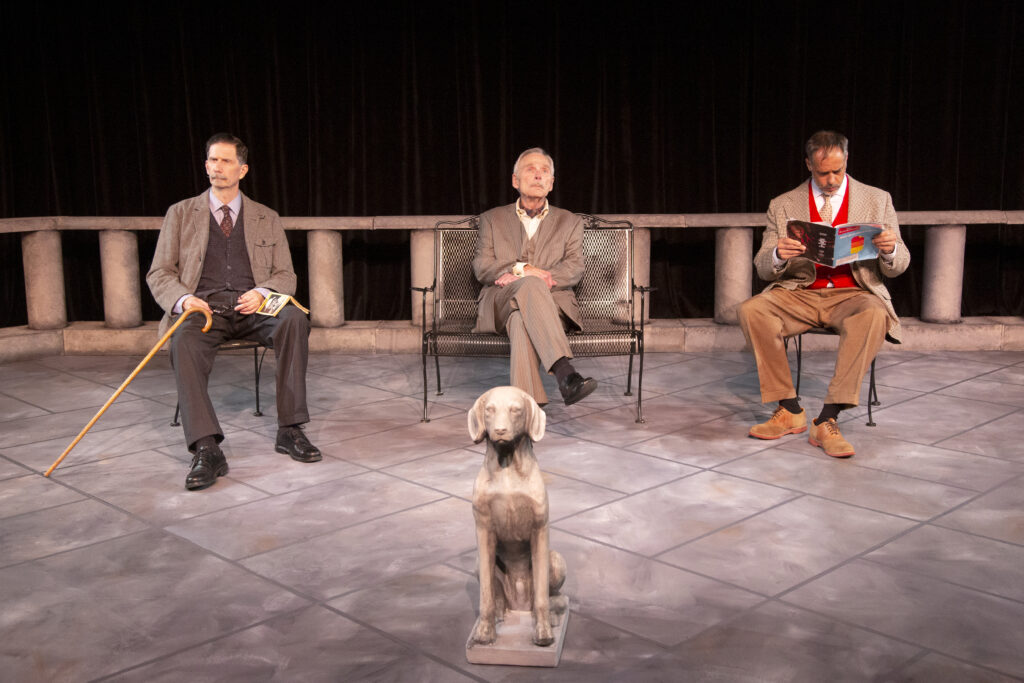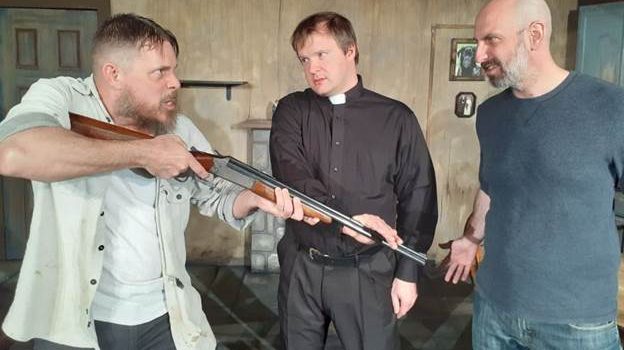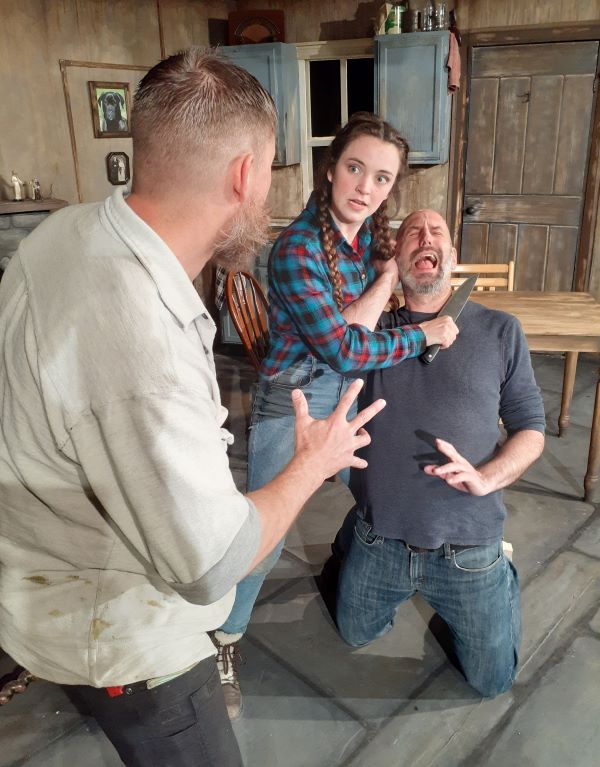Line-up includes The Tempest, Rosencrantz & Guildenstern are Dead, Two Gentlemen of Verona, and Romeo & Zooliet
The St. Louis Shakespeare Festival announcedtodayits line-up for their 26th Season of free Shakespeare with THE TEMPESTas the mainstage production in Forest Park. Directed by the Festival’s former artistic director Rick Dildine and featuring Nancy Bell as Prospero, THE TEMPEST, will begin free public performances in Shakespeare Glen on Wednesday, May 27 and run Tuesday – Sunday nights through June 21.
The romance and comedy-forward 2026 season lineup includes the previously announced CONFLUENCE NEW PLAY FESTIVAL (March 19-21), TourCo, a free and outdoor public parks tour of TWO GENTLEMEN OF VERONA directed by Rebekah Scallet (August 4-September 6), ROSENCRANTZ AND GUILDENSTERN ARE DEAD (March 26-April 11), in association with Albion Theatre, and the return of and updated and refreshed ROMEO & ZOOLIET (Fall 2026). The annual Shakespeare in the Streets community storytelling event will return in 2027 in DOGTOWN. During the 2026 season, the Festival will also host the return of Boozy Bard with THE RECLAIMING OF THE SHREW at Schlafly Tap Room.
Tom Ridgely, Artistic Director: “From Hollywood to London, Shakespeare is once again having a moment. His stories and poetry continue to shape our culture in subtle and profound ways. They connect us by illuminating our most defining experiences: love and loss, rupture and reconciliation. This season is about sharing those riches with more of St. Louis than ever before – and celebrating St. Louis’s unique contributions to Shakespeare in America.”
Kate Tichelkamp, Executive Director: “After celebrating a record-breaking 25th anniversary, we’re stepping into 2026 with tremendous momentum. This season builds on the energy, ambition, and community support that have shaped the Festival over the past 25 years, while continuing to expand what’s possible for Shakespeare in St. Louis. We’re excited to carry that success forward and to keep creating experiences that bring people together through extraordinary storytelling.”
The St. Louis Shakespeare Festival’s commitment to radically accessible free theater is made possible through the support of hundreds of Festival supporters throughout the year. Lead support of the 2026 Season comes from Edward Jones, Regional Arts Commission ARPA for the Arts, Whitaker Foundation, Switch, Missouri Arts Council, and Pershing Charitable Trust.

SEASON DETAILS
SHAKESPEARE IN THE PARK is the Festival’s flagship production and the unofficial start of the summer season in St. Louis. As one of the world’s largest free and outdoor Shakespeare productions, the show is accessible for everyone, always. This summer, THE TEMPEST, directed by Rick Dildine, returns to Shakespeare Glen for the first time in 20 years.
“Returning to Forest Park feels like coming home. Shakespeare Glen is one of the most inspiring outdoor spaces in the country to share this work, and I’m deeply honored to be invited back to direct The Tempest for the people of St. Louis,” said Rick Dildine. “Having previously staged Twelfth Night and A Midsummer Night’s Dream here, I know how powerfully these plays live under the open sky – where the city, the landscape and the audience all become part of the story. I can’t wait to make theater in St. Louis again.”
Nancy Bell (Prospero): “Years ago, I directed a motley cast of elementary students in an abridged version of The Tempest. On opening night, the third-grade girl who played Prospero held up her cardboard magic wand and said the line, “I’ll break my staff.” She snapped it in half. Her voice broke and she bowed her head. It was one of the most thrilling moments I’ve ever seen in the theatre. It was as if this young person was somehow channeling an elderly Renaissance sorcerer. It made me realize that the play, like many of Shakespeare’s is truly – maybe literally magic.”
BOOZY BARD’S “THE RECLAIMING OF THE SHREW”, marks the return of the wildly popular 2025 event, this time taking on Shakespeare’s The Taming of the Shrew at Schlafly Tap Room on February 5, 6, 12 & 13. During an evening with Boozy Bard, an inebriated performer voluntarily struggles to reconstruct a character in a Shakepeare plan after imbibing several shots of whiskey while the remaining sober performer try to keep the story on track. Tickets for this 21+ event are now on sale.
THE CONFLUENCE NEW PLAY FESTIVAL was created in 2018 to further foster a culture of playwriting in the Midwest by supporting emerging writers in Missouri and Illinois with a fellowship and weekend-long celebration of new works at the Confluence New Play Festival each spring. Under the direction of St. Louis’s own Drama Desk-nominated playwright Deanna Jent since 2022, Confluence has commissioned 19 new plays, six of which have gone on to world premieres around the country. Current fellows include Zachariah Ezer, Pamela Morgan, and Catherine Yu. The Festival will present staged readings of their plays and take place March 19-21, 2026.
ROSENCRANTZ AND GUILDENSTERN ARE DEAD, written by Tom Stoppard, directed by Tom Ridgely, and presented in association with Albion Theatre (Robert Ashton, Artistic Director), arrives in St. Louis in spring 2026. What happens when you’re not the hero of the story? Rosencrantz and Guildenstern Are Dead flips Hamlet on its head, following two side characters who suddenly find themselves trapped inside a story they don’t fully understand. As events spiral around them, Rosencrantz and Guildenstern wrestle with fate, free will, friendship, and the unsettling realization that they may have very little control over what happens next. Performances begin at the Kranzberg Arts Center’s Black Box Theater on March 26 and close April 11, 2026.
ROSENCRANTZ AND GUILDENSTERN ARE DEAD is presented by arrangement with Concord Theatricals on behalf of Dramatists Play Service. www.concordtheatricals.com
TOURCO, the free touring program, TWO GENTLEMEN OF VERONA written by William Shakespeare and directed by the New Jewish Theater’s Rebekah Scallet, features six actors performing a 90-minute free and outdoor adaptation in parks around the region. One of the largest free Shakespeare tours in the country, TourCo will run for a record 5 consecutive weeks in 2026, opening August 4. TWO GENTLEMEN OF VERONA is complete with disguises, misunderstandings – and one very scene-stealing dog – and takes on friendship, forgiveness and the hilarious messiness of growing up.
“I am so thrilled to be able to work with the St. Louis Shakespeare Festival on this production of Two Gents. I have a deep passion for Shakespeare, and this will be my first opportunity to direct one of his works in St. Louis,” said Rebekah Scallet. “This play is also one of my favorites – though it is one of his earliest works, it is full of hints at what it is to come with amazing comic characters and touching love stories — it even has Shakespeare’s first balcony scene! There is truly something for everyone in this coming-of-age adventure, and it will be a perfect show to share with audiences across St. Louis this summer.”
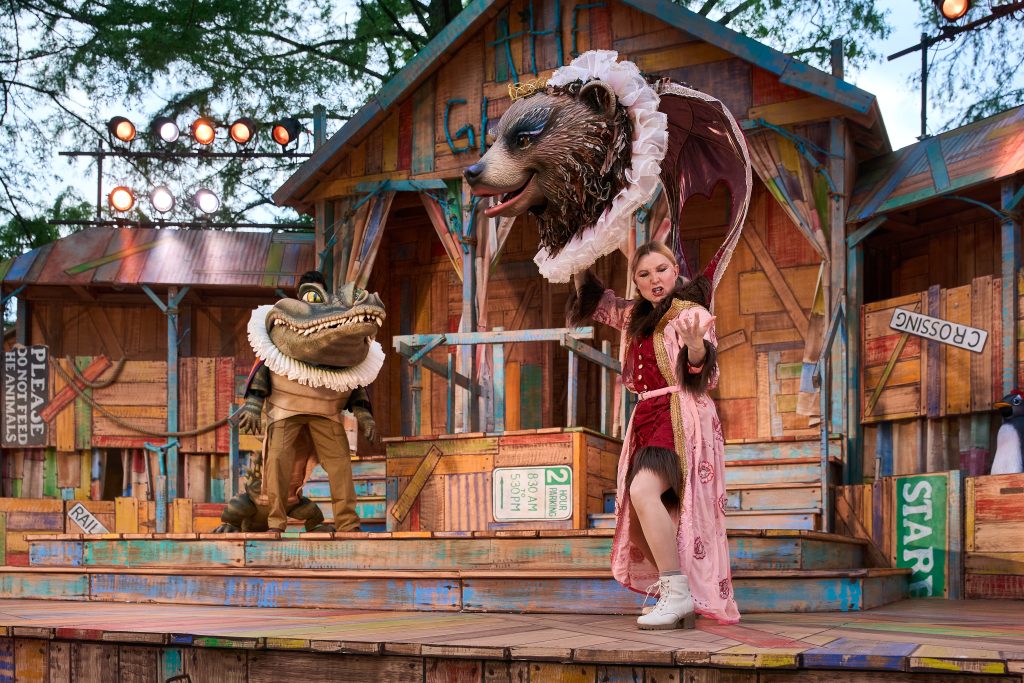
ROMEO & ZOOLIET, written by Jennifer Joan Thompson and directed by Tom Ridgely, is eyeing a return to St. Louis in fall 2026 at a soon-to-be-announced location. In this updated and refreshed production, the animals and back and sillier than ever. ROMEO & ZOOLIET is a vibrant family comedy filled with laughter, friendship and larger-than-life puppets from world-renowned Michael Curry Design. It’s a playful celebration of curiosity, courage and connection – perfect for audiences of all ages.
SHAKESPEARE IN THE STREETS, the internationally recognized community engagement program, that most recently visited East St. Louis will arrive in DOGTOWN in 2027. Shakespeare in the Streets is a grassroots theatrical experience that invites St. Louis neighborhoods to tell their stories. A Festival-selected creative team leads the neighborhood in developing an original play based on one of Shakespeare’s works – a play with themes that reflect the community’s character.
Tickets for ROSENCRANTZ AND GUILDENSTERN ARE DEAD will go on sale to the general public on Monday, February 2, 2026. Reserved seats and boxes for THE TEMPEST in Shakespeare Glen will go on sale in April 2026.
Visit STLShakes.org/Current-Season for more information.

Biographies
The St. Louis Shakespeare Festival strives to foster community and joy across the St. Louis region through the Shakespearean tradition of art for all. Since 2001, the Festival has grown from producing a single production of Shakespeare in Forest Park to a year-round season of impactful programming in exciting and accessible venues throughout the bi-state area. Artistic and education programs reach over 50,000 patrons and students each season. Their award-winning work has been featured in the New York Times, Wall Street Journal, and Bloomberg News.
Rick Dildine For over 20 years, Rick has led some of the most prestigious theater companies in America. Today he serves as Artistic Director of the Tony Award-winning Children’s Theatre Company, the largest theater in North America dedicated to creating work for multi-generational audiences. Previously, he served as Artistic Director of Alabama Shakespeare Festival and St. Louis Shakespeare Festival. He’s also led Shakespeare & Company, About Face Theatre, and the Stephen Foster Theater. He is a member of the National Board of Directors of Theatre for Young Audiences/USA. MFA from Brown University/Trinity Rep. Member, SDC. His directing credits include A Midsummer Night’s Dream, Twelfth Night, Macbeth, Romeo & Juliet, and The Tempest.
Rebekah Scallet is the Artistic Director of the New Jewish Theatre (NJT), a position she has held since 2022. Credits at NJT include: Cabaret, We All Fall Down and The Immigrant. Other St. Louis credits include The Roommate at the Repertory Theatre of St. Louis and Moliére’s The Learned Ladies for the Sargent Conservatory at Webster University. Rebekah was also the Producing Artistic Director of the Arkansas Shakespeare Theatre for nine years, where she directed many of Shakespeare’s works with some of her favorites being Twelfth Night, King Lear and Macbeth. Other recent credits include The Tempest at the Texas Shakespeare Festival, and The Winter’s Tale for Illinois Shakespeare Festival. Rebekah received her Bachelor of Arts in Theatre and English from Brandeis University and her Master of Fine Arts degree in Directing from Illinois State University.
Nancy Bell is a theatre artist and writer who is grateful to have had St. Louis Shakespeare Festival as an artistic home for more than a decade. She served as Playwright-In-Residence here for six years, serving under Rick Dildine’s leadership as the first playwright for the Festival’s groundbreaking Shakespeare in the Streets program. She was the founding director of the Festival’s Confluence New Play Festival, and the director of Into the Breeches and 2024’s award-winning As You Like It. She is a familiar performer and director at the Repertory Theatre of St. Louis, as well. Recent credits there include The Roommate, Athena, and Emma. Other credits nationally include New York Theatre Workshop, Manhattan Theatre Club, South Coast Repertory, The Geffen Playhouse, The Old Globe, Alabama Shakespeare Festival, among many others. TV and film credits from once upon a time include Star Trek Voyager, Guiding Light, Mad About You, Newsradio, and various Law and Orders. She is Professor of Theatre at St. Louis University.
Tom Ridgely is a Drama Desk-nominated director who has developed or presented work at the Public Theater, The Old Globe, Oregon Shakespeare Festival, Hudson Valley Shakespeare Festival, Red Bull and more, and his productions have won DFW Theater Critics Forum and ECNY Awards and been nominated for St. Louis Theater Circle, Connecticut Critics Circle and BroadwayWorld Connecticut Awards. He came to the Festival from Waterwell in New York City, the company he co-founded and led from 2002-2018. There he helped create and produce more than a dozen world premieres and adaptations of classics nominated for three IT awards, a Drama Desk, a New York Magazine Culture Award and a Village Voice “Best of NYC”. Since taking over the Festival, he has won a St. Louis Magazine A-List Award for “New Arts Leader” and oversaw the Festival’s shift to developing and producing new work, which also won an A-List Award for “New Programming.”


Lynn (Zipfel) Venhaus has had a continuous byline in St. Louis metro region publications since 1978. She writes features and news for Belleville News-Democrat and contributes to St. Louis magazine and other publications.
She is a Rotten Tomatoes-approved film critic, currently reviews films for Webster-Kirkwood Times and KTRS Radio, covers entertainment for PopLifeSTL.com and co-hosts podcast PopLifeSTL.com…Presents.
She is a member of Critics Choice Association, where she serves on the women’s and marketing committees; Alliance of Women Film Journalists; and on the board of the St. Louis Film Critics Association. She is a founding and board member of the St. Louis Theater Circle.
She is retired from teaching journalism/media as an adjunct college instructor.


